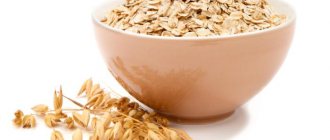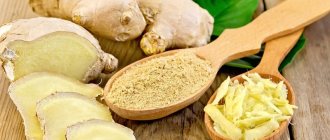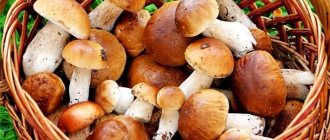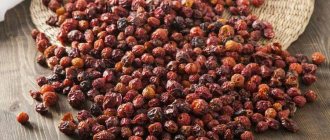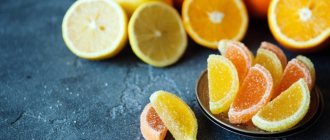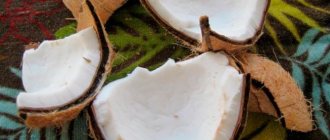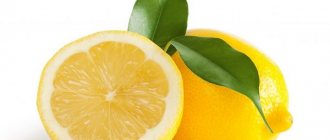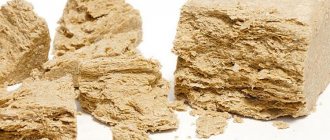Sugar during breastfeeding: benefits and harms
Ordinary sugar contains a lot of calories and energy resources, which make it possible to:
- recover;
- improve mood;
- normalize sleep;
- protect the liver from toxins;
- improve the body’s absorption of vitamins and microelements;
- stimulate brain activity.
By receiving lactose, fructose and glucose with sugar, a woman quickly returns to normal physically and morally. And these substances guarantee full development for the child.
But excessive passion for sweet substances leads to malfunctions in the female body.
Hormonal imbalances begin. The immune system of a nursing mother suffers. Eating large amounts of foods containing sugar leads to tooth decay. And tooth enamel after childbirth is especially defenseless and is often quickly destroyed by sugar. Increased blood glucose levels during breastfeeding are dangerous. Not only the woman, but also the child is at risk of developing diabetes.
What are the advantages and disadvantages of a sugar substitute for breastfeeding?
It is difficult to argue with the fact that ordinary white crystalline sugar is not very beneficial for human health, and this is to put it mildly. The fact is that this product carries a lot of obvious and hidden threats, and also does not contain any useful or nutrients.
In addition, if after giving birth a young nursing mother is overweight, then reducing the consumption of white granulated sugar is not only desirable, but even recommended by doctors. And in general, in order to stay healthy and have a beautiful figure even after the birth of a child, it is better not to eat more than three teaspoons of sugar per day. But is this possible when you have to constantly drink teas and warm drinks while breastfeeding?
White sugar is found virtually everywhere - in store-bought dairy products, even in diet or low-calorie cookies. And sometimes it’s even included in vitamins or tablets to make them taste less bitter.
It seems that the only healthy option is to switch to sugar substitutes and artificial sweeteners after you have your baby to reduce the risk of side effects from eating white sugar. And, as you know, sweet drinks, even if it is healthy herbal tea, can greatly bloat the intestines, so during lactation doctors advise not to exceed the daily intake of this product.
What effect does sugar have on a breastfeeding baby?
A child's digestion is so imperfect in the first months of life. Excess sugars obtained from breast milk lead to:
- colic;
- increased gas formation;
- diathesis and allergies;
- heaviness and pain in the stomach.
The appearance of itching, irritation on the baby’s skin, and rashes should not be ignored. If mom consumed a lot of sweets and jam during this period, then it is necessary to urgently exclude sweets from the diet. Carbonated drinks that contain a lot of sucrose are especially dangerous.
When can it be added to the diet?
After giving birth, a woman often tries to start eating as usual, forgetting that everything will enter the baby’s body through milk. And how he will react to his mother’s nutrition is unknown. Therefore, sugar and products containing it are introduced gradually during the first month.
Sucrose crystals are quickly absorbed into the blood, raising blood glucose levels. Then comes a decline in performance. This is where allergic reactions occur in the baby. You can’t eat too much sweets while breastfeeding, because the baby will cry and have trouble sleeping due to colic in the stomach.
If a reaction to the consumption of sweets does not occur, then gradually include marshmallows, fruits, oatmeal cookies, and juices in the menu.
How to replace sugar when breastfeeding?
So what about sweets? Everyone knows about the existence of various sweeteners. Among them, you need to choose harmless natural sweeteners. Please know that chemical sugar substitutes should not be present in the diet of a nursing mother.
Many food products use artificial sweeteners, which are harmful to both the baby and the mother. Their use is contraindicated.
- Aspartame – turns toxic when heated, increases the risk of developing bladder cancer
- Cyclamate is prohibited in the European Union, has a bad effect on kidney function, and is dangerous during pregnancy.
- Saccharin is harmful to the gastrointestinal tract, can accumulate in the child’s body, is prohibited in many countries
- Acesulfame K - may cause problems with the cardiovascular system.
The use of some available naturally occurring sweeteners is also not always safe.
- Xylitol – in large quantities can cause gastrointestinal disorders
- Sorbitol is unfavorable for intestinal function and can cause diarrhea.
- Fructose – like sugar, affects blood glucose levels, does not reduce the risk of obesity
Permitted rate
You don’t need to completely stop drinking sucrose, but you should drink tea with 1-2 teaspoons no more than 3 times a day. Foods high in carbohydrates are essential in the diet. But here they monitor the baby’s body’s reaction to them. Therefore, the permitted consumption rate is different for everyone, strictly individual.
Mommy needs to keep a diary, write down what sweets she eats and how much. Be sure to make a column where they record how the child reacts to the mother’s nutrition during breastfeeding. All sweet products are subject to accounting. After all, bakers include sucrose in baked goods and cookies.
In total, a woman during lactation needs 30 grams of sugar per day. This amount is equal to 6 teaspoons. In the first months of life, if the norm is not followed, the baby may develop allergies. And it will be more difficult to cure her.
Should you give up sugar completely?
A fully breastfeeding woman refuses sweets when her baby:
- severe allergic reaction;
- colic occurs regularly;
- High blood sugar may be inherited.
When close relatives are struggling with diabetes with insulin injections, it is necessary to protect the baby by reducing sucrose consumption to a minimum.
Women trying to bring their body weight back to normal after childbirth should give up sweets and starchy foods.
Sweeteners during breastfeeding
When sugar is prohibited for consumption, you need to find something to replace it with. After all, without carbohydrates it is difficult for the body to cope with physical and nervous stress.
Fructose
Fructose obtained from fruits and honey is less harmful. It can be consumed in small quantities even by people with diabetes. It is important to monitor the rate of fructose use. This product does not make you feel full, so you can eat a lot of it. It is best to make sweets from fruit sugar than to consume it in its pure form.
Stevia
This substance is beneficial as a sweetener. It is prepared from a herbaceous plant with a sweet taste. Being 15 times sweeter than sucrose, stevia is very low in calories. The plant contains many antioxidants and vitamins. Sweetener is used in the preparation of confectionery products. The natural sweetener does not cause allergies, so it is recommended for breastfeeding women.
Cane sugar
Unlike beet sugar, cane sugar contains substances that are better absorbed. The product contains B vitamins, zinc, and iron. Brown sugar contains more glucose than sucrose, which is good for brain function. The energy obtained from cane sugar must be spent so that glucose does not accumulate in the body. Therefore, pregnant and lactating women should consume it in a rationed manner.
Harm of artificial sugar during breastfeeding
However, many nursing mothers do not realize that artificial sugar is no healthier than regular sugar, and sometimes even much more harmful. Yes, it contains fewer calories and is not so harmful to the female figure, but this does not make it safer for the body.
The fact is that many artificial sweeteners have a number of significant and dangerous side effects. Some increase the risk of developing malignant tumors tens or even hundreds of times, others increase appetite, and still others can cause an allergic reaction.
Some types of sugar substitutes are recognized as hazardous to health and are strictly prohibited for consumption by pregnant and nursing mothers, but they still actively appear on sale and appear on supermarket shelves, and not every woman considers it necessary to find out more about the product when buying it in the supermarket.
Before using a sweetener while breastfeeding, you need to make sure that it is approved for use by pregnant women and those who are breastfeeding. If you do not follow this rule, you can greatly harm not only your own health, but also the well-being of your newborn baby, because most of the dangerous substances easily penetrate into mother’s breast milk.
Artificial sweeteners are especially harmful - for the most part, not a single type is without significant side effects. Therefore, it is better to abandon them immediately, so as not to undermine your health or acquire serious illnesses. Below we will look at this nuance in more detail, and at the same time find out which sugar substitute can be used by a nursing woman and in what dosages.
Harm of artificial sweeteners
If natural sweeteners can be consumed during lactation, then artificially created ones should be excluded from the menu:
- Aspartame is dangerous because it turns into methyl alcohol. This poison causes poisoning in mother and baby.
- Sorbitol and xylitol cause diarrhea. Abuse of sweeteners leads to urinary tract cancer.
- Suclamate and saccharin are dangerous for the body of women and babies, as they contain toxins.
Artificial sweeteners are poorly excreted from the body, so they accumulate in it and gradually poison it.
Recipes for sweets made from natural sweeteners
Natural sugar substitutes are available for women who are breastfeeding. But it is better to replace pure fructose by preparing delicious products from it.
Halva with fructose
The oriental sweet is prepared like this:
- First, grind half a glass of roasted sunflower seeds.
- Pass flour in an amount of 1.5 cups until brown, mix with seeds.
- Make syrup from 1 fruit sugar by adding 700 milliliters of water.
- After 5-10 minutes of boiling over low heat, pour in 150 milliliters of sunflower oil.
- Remove from heat, add mixture of seeds and flour, stir thoroughly.
- Place in a mold and cool for 4 hours.
Cut the finished mass and serve it to the table.
Natural analogues of sugar during lactation
Natural sugar substitutes are less harmful than synthetic ones. They can be consumed while breastfeeding, but only in limited quantities.
Stevia is the safest sweetener
Such substances of natural origin also have side effects. For example, fructose can disrupt the favorable environment inside the body by increasing acidity.
Sorbitol and xylitol are ingredients that will help cause diarrhea in a nursing mother. Moreover, if they are abused, the likelihood of developing urinary tract cancer increases.
Stevia is the safest sweetener, so it can be used during lactation.


